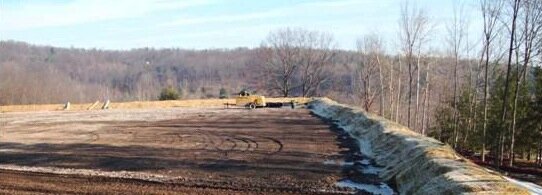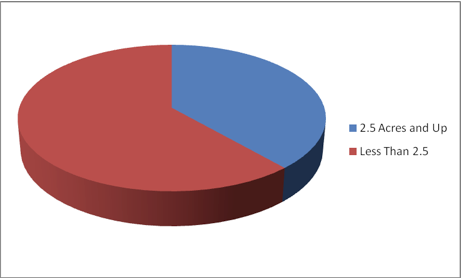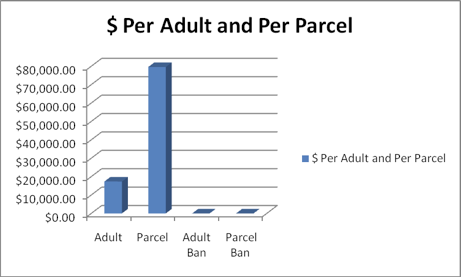Pennsylvania statute ending home rule
Submitted by admin on Fri, 03/09/2012 - 23:24
On April 14, Pennsylvania will eliminate almost entirely local home rule on gas issues. Experience has shown that local home rule does not work regarding energy development. New York also tried local home rule with vertical wells decades ago. It failed for similar reasons, leading to the current New York preemption law. We are posting the source law for Pennsylvania.
***
PENNSYLVANIA CONSOLIDATED STATUTES
TITLE 58. OIL AND GAS
PART III. UTILIZATION
CHAPTER 33. LOCAL ORDINANCES RELATING TO OIL AND GAS OPERATIONS.
58 Pa.C.S. ß 3301 (2012)
ß 3301. Definitions. [Effective April 14, 2012]
The following words and phrases when used in this chapter shall have the meanings given to them in this section unless the context clearly indicates otherwise:
"Building." An occupied structure with walls and a roof within which individuals live or customarily work.
"Commission." The Pennsylvania Public Utility Commission.
"Environmental acts." All statutes enacted by the Commonwealth relating to the protection of the environment or the protection of public health, safety and welfare, that are administered and enforced by the department or by another Commonwealth agency, including an independent agency, and all Federal statutes relating to the protection of the environment, to the extent those statutes regulate oil and gas operations.
"Local government." A county, city, borough, incorporated town or township of this Commonwealth.
"Local ordinance." An ordinance or other enactment, including a provision of a home rule charter, adopted by a local government that regulates oil and gas operations.
"MPC." The act of July 31, 1968 (P.L. 805, No. 247), known as the Pennsylvania Municipalities Planning Code.
"Oil and gas operations." The term includes the following:
(1) well location assessment, including seismic operations, well site preparation, construction, drilling, hydraulic fracturing and site restoration associated with an oil or gas well of any depth;
(2) water and other fluid storage or impoundment areas used exclusively for oil and gas operations;
(3) construction, installation, use, maintenance and repair of:
(i) oil and gas pipelines;
(ii) natural gas compressor stations; and
(iii) natural gas processing plants or facilities performing equivalent functions; and
(4) construction, installation, use, maintenance and repair of all equipment directly associated with activities specified in paragraphs (1), (2) and (3), to the extent that:
(i) the equipment is necessarily located at or immediately adjacent to a well site, impoundment area, oil and gas pipeline, natural gas compressor station or natural gas processing plant; and
(ii) the activities are authorized and permitted under the authority of a Federal or Commonwealth agency.
"Permitted use." A use which, upon submission of written notice to and receipt of a permit issued by a zoning officer or equivalent official, is authorized to be conducted without restrictions other than those set forth in section 3304 (relating to uniformity of local ordinances).
HISTORY: Act 2012-13 (H.B. 1950), P.L. 87, ß 1, approved Feb. 14, 2012, eff. in 60 days.
EDITOR'S NOTES.
Section 1 of Act 2012-13 added new Chapter 33, "Local Ordinances Relating to Oil and Gas Operations" on February 14, 2012, effective in 60 days.
58 Pa.C.S. ß 3302 (2012)
ß 3302. Oil and gas operations regulated pursuant to Chapter 32. [Effective April 14, 2012]
Except with respect to local ordinances adopted pursuant to the MPC and the act of October 4, 1978 (P.L. 851, No. 166), known as the Flood Plain Management Act, all local ordinances purporting to regulate oil and gas operations regulated by Chapter 32 (relating to development) are hereby superseded. No local ordinance adopted pursuant to the MPC or the Flood Plain Management Act shall contain provisions which impose conditions, requirements or limitations on the same features of oil and gas operations regulated by Chapter 32 or that accomplish the same purposes as set forth in Chapter 32. The Commonwealth, by this section, preempts and supersedes the regulation of oil and gas operations as provided in this chapter.
EDITOR'S NOTES.
Section 4 of Act 2012-13 provides as follows:
"The addition of 58 Pa.C.S. Ch. 32 and 58 Pa.C.S. Section 3302 is a continuation of the act of December 19, 1984 (P.L. 1140, No. 223), known as the Oil and Gas Act. The following apply:
(1) Except as otherwise provided in 58 Pa.C.S. Ch. 32 or 33, all activities initiated under the Oil and Gas Act shall continue and remain in full force and effect and may be completed under 58 Pa.C.S. Chs. 32 and 33. Orders, regulations, rules and decisions which were made under the Oil and Gas Act and which are in effect on the effective date of section 3(2) of this act shall remain in full force and effect until revoked, vacated or modified under 58 Pa.C.S. Ch. 32 or 33. Except as provided in 58 Pa.C.S. Ch. 35, contracts, obligations and collective bargaining agreements entered into under the Oil and Gas Act are not affected nor impaired by the repeal of the Oil and Gas Act.
(2) Except as set forth in paragraph (3), any difference in language between 58 Pa.C.S. Ch. 32 and the Oil and Gas Act is intended only to conform to the style of the Pennsylvania Consolidated Statutes and is not intended to change or af-fect the legislative intent, judicial construction or administration and implementation of the Oil and Gas Act.
(3) Paragraph (2) does not apply to the addition of the following provisions of 58 Pa.C.S.:
(i) Section 3203.
(ii) Section 3211.
(iii) Section 3212.1.
(iv) Section 3215.
(v) Section 3216.
(vi) Section 3218.
(vii) Section 3218.1.
(viii) Section 3218.2.
(ix) Section 3218.3.
(x) Section 3218.4.
(xi) Section 3218.5.
(xii) Section 3219.1.
(xiii) Section 3222.
(xiv) Section 3222.1.
(xv) Section 3225.
(xvi) Section 3227.
(xvii) Section 3252.
(xviii) Section 3253.
(xix) Section 3254.1.
(xx) Section 3255.
(xxi) Section 3256.
(xxii) Section 3258.
(xxiii) Section 3261.
(xxiv) Section 3262.
(4) Any difference in language between 58 Pa.C.S. ß 3302 and ß 602 of the Oil and Gas Act is intended only to conform to the style of the Pennsylvania Consolidated Statutes and is not intended to change or affect the legislative intent, judicial construction or administration and implementation of section 602 of the Oil and Gas Act."
58 Pa.C.S. ß 3303 (2012)
ß 3303. Oil and gas operations regulated by environmental acts. [Effective April 14, 2012]
Notwithstanding any other law to the contrary, environmental acts are of Statewide concern and, to the extent that they regulate oil and gas operations, occupy the entire field of regulation, to the exclusion of all local ordinances. The Commonwealth by this section, preempts and supersedes the local regulation of oil and gas operations regulated by the environmental acts, as provided in this chapter.
58 Pa.C.S. ß 3304 (2012)
ß 3304. Uniformity of local ordinances. [Effective April 14, 2012]
(a) General rule. --In addition to the restrictions contained in sections 3302 (relating to oil and gas operations regulated pursuant to Chapter 32) and 3303 (relating to oil and gas operations regulated by environmental acts), all local ordinances regulating oil and gas operations shall allow for the reasonable development of oil and gas resources.
(b) Reasonable development of oil and gas resources. --In order to allow the for the reasonable development of oil and gas resources, a local ordinance:
(1) Shall allow well and pipeline location assessment operations, including seismic operations and related activities conducted in accordance with all applicable Federal and State laws and regulations relating to the storage and use of explosives throughout every local government.
(2) May not impose conditions, requirements or limitations on the construction of oil and gas operations that are more stringent than conditions, requirements or limitations imposed on construction activities for other industrial uses within the geographic boundaries of the local government.
(3) May not impose conditions, requirements or limitations on the heights of structures, screening and fencing, lighting or noise relating to permanent oil and gas operations that are more stringent than the conditions, requirements or limitations imposed on other industrial uses or other land development within the particular zoning district where the oil and gas operations are situated within the local government.
(4) Shall have a review period for permitted uses that does not exceed 30 days for complete submissions or that does not exceed 120 days for conditional uses.
(5) Shall authorize oil and gas operations, other than activities at impoundment areas, compressor stations and processing plants, as a permitted use in all zoning districts.
(5.1) Notwithstanding section 3215 (relating to well location restrictions), may prohibit, or permit only as a conditional use, wells or well sites otherwise permitted under paragraph (5) within a residential district if the well site can-not be placed so that the wellhead is at least 500 feet from any existing building. In a residential district, all of the following apply:
(i) A well site may not be located so that the outer edge of the well pad is closer than 300 feet from an existing building.
(ii) Except as set forth in paragraph (5) and this paragraph, oil and gas operations, other than the placement, use and repair of oil and gas pipelines, water pipelines, access roads or security facilities, may not take place within 300 feet of an existing building.
(6) Shall authorize impoundment areas used for oil and gas operations as a permitted use in all zoning districts, provided that the edge of any impoundment area shall not be located closer than 300 feet from an existing building.
(7) Shall authorize natural gas compressor stations as a permitted use in agricultural and industrial zoning districts and as a conditional use in all other zoning districts, if the natural gas compressor building meets the following standards:
(i) is located 750 feet or more from the nearest existing building or 200 feet from the nearest lot line, whichever is greater, unless waived by the owner of the building or adjoining lot; and
(ii) the noise level does not exceed a noise standard of 60dbA at the nearest property line or the applicable standard imposed by Federal law, whichever is less.
(8) Shall authorize a natural gas processing plant as a permitted use in an industrial zoning district and as conditional uses in agricultural zoning districts if all of the following apply:
(i) The natural gas processing plant building is located at the greater of at least 750 feet from the nearest exist-ing building or at least 200 feet from the nearest lot line unless waived by the owner of the building or adjoining lot.
(ii) The noise level of the natural gas processing plant building does not exceed a noise standard of 60dbA at the nearest property line or the applicable standard imposed by Federal law, whichever is less.
(9) Shall impose restrictions on vehicular access routes for overweight vehicles only as authorized under 75 Pa.C.S.. (relating to vehicles) or the MPC.
(10) May not impose limits or conditions on subterranean operations or hours of operation of compressor stations and processing plants or hours of operation for the drilling of oil and gas wells or the assembly and disassembly of drill-ing rigs.
(11) May not increase setback distances set forth in Chapter 32 (relating to development) or this chapter. A local ordinance may impose setback distances that are not regulated by or set forth in Chapter 32 or this chapter if the set-backs are no more stringent than those for other industrial uses within the geographic boundaries of the local government.
58 Pa.C.S. ß 3305 (2012)
ß 3305. Commission. [Effective April 14, 2012]
(a) Advisory opinions to municipalities.
(1) A municipality may, prior to the enactment of a local ordinance, in writing, request the commission to review a proposed local ordinance to issue an opinion on whether it violates the MPC, this chapter or Chapter 32 (relating to development).
(2) Within 120 days of receiving a request under paragraph (1), the commission shall, in writing, advise the municipality whether or not the local ordinance violates the MPC, this chapter or Chapter 32.
(3) An opinion under this subsection shall be advisory in nature and not subject to appeal.
(b) Orders.
(1) An owner or operator of an oil or gas operation, or a person residing within the geographic boundaries of a lo-cal government, who is aggrieved by the enactment or enforcement of a local ordinance may request the commission to review the local ordinance of that local government to determine whether it violates the MPC, this chapter or Chapter 32.
(2) Participation in the review by the commission shall be limited to parties specified in paragraph (1) and the municipality which enacted the local ordinance.
(3) Within 120 days of receiving a request under this subsection, the commission shall issue an order to determine whether the local ordinance violates the MPC, this chapter or Chapter 32.
(4) An order under this subsection shall be subject to de novo review by the Commonwealth court. A petition for review must be filed within 30 days of the date of service of the commission's order. The order of the commission shall be made part of the record before the court.
(c) Exemptions. --An opinion under subsection (a) and an order under subsection (b) shall not be subject to:
(1) 2 Pa.C.S. Ch. 5 Subch. A (relating to practice and procedure of Commonwealth agencies);
(2) 65 Pa.C.S. Ch. 7 (relating to open meetings); or
(3) 66 Pa.C.S. Ch. 3 Subch. B (relating to investigations and hearings).
(d) Authority. --The commission has the following powers to carry out this chapter:
(1) Employ individuals.
(2) Issue orders.
(3) Promulgate regulations.
(4) Until January 1, 2013, promulgate temporary regulations. Regulations under this paragraph:
(i) shall expire no later than two years following the effective date of this section; and
(ii) are exempt from:
(A) sections 201, 202 and 203 of the act of July 31, 1968 (P.L. 769, No. 240), referred to as the Common-wealth Documents Law; and
(B) The act of June 25, 1982 (P.L. 633, No. 181), known as the Regulatory Review Act.
58 Pa.C.S. ß 3306 (2012)
ß 3306. Civil actions. [Effective April 14, 2012]
The Following shall apply:
(1) Notwithstanding any provision of 42 Pa.C.S. Ch. 85 Subch. C (relating to actions against local parties), any person who is aggrieved by the enactment or enforcement of a local ordinance that violates the MPC, this chapter or Chapter 32 may bring an action in Commonwealth Court to invalidate the ordinance or enjoin its enforcement.
(2) An aggrieved person may proceed under this section without first obtaining review of the ordinance by the commission.
(3) In an action relating to the enactment or enforcement of a local ordinance, a determination of the commission made under section 3305(b) (relating to commission) shall become part of the record before the court.
58 Pa.C.S. ß 3307 (2012)
ß 3307. Attorney fees and costs. [Effective April 14, 2012]
In an action brought under section 3306 (relating to civil actions), the court may do any of the following:
(1) If the court determines that the local government enacted or enforced a local ordinance with willful or reckless disregard of the MPC, this chapter or Chapter 32 (relating to development), it may order the local government to pay the plaintiff reasonable attorney fees and other reasonable costs incurred by the plaintiff in connection with the action.
(2) If the court determines that the action brought by the plaintiff was frivolous or was brought without substan-tial justification in claiming that the local ordinance in question was contrary to the MPC, this chapter or Chapter 32, it may order the plaintiff to pay the local government reasonable attorney fees and other reasonable costs incurred by the local government in defending the action.
58 Pa.C.S. ß 3308 (2012)
ß 3308. Ineligibility. [Effective April 14, 2012]
If the commission, the Commonwealth Court or the Supreme Court issues an order that a local ordinance violates the MPC, this chapter or Chapter 32 (relating to development), the municipality enacting or enforcing the local ordinance shall be immediately ineligible to receive any funds collected under Chapter 23 (relating to unconventional gas well fee). The local government shall remain ineligible to receive funds under Chapter 23 until the local government amends or repeals its ordinance in accordance with this chapter or the order or determination that the local ordinance is unlawful is reversed on appeal.
58 Pa.C.S. ß 3309 (2012)
ß 3309. Applicability. [Effective April 14, 2012]
(a) Ordinances. --This chapter shall apply to the enforcement of local ordinances existing on the effective date of this chapter and to the enactment or enforcement of a local ordinance enacted on or after the effective date of this chap-ter.
(b) Local governments. --A local government that has enacted a local ordinance relating to oil and gas operations prior to the effective date of this chapter shall have 120 days from the effective date of this chapter to review and amend an ordinance in order to comply with this chapter.
- Log in to post comments





